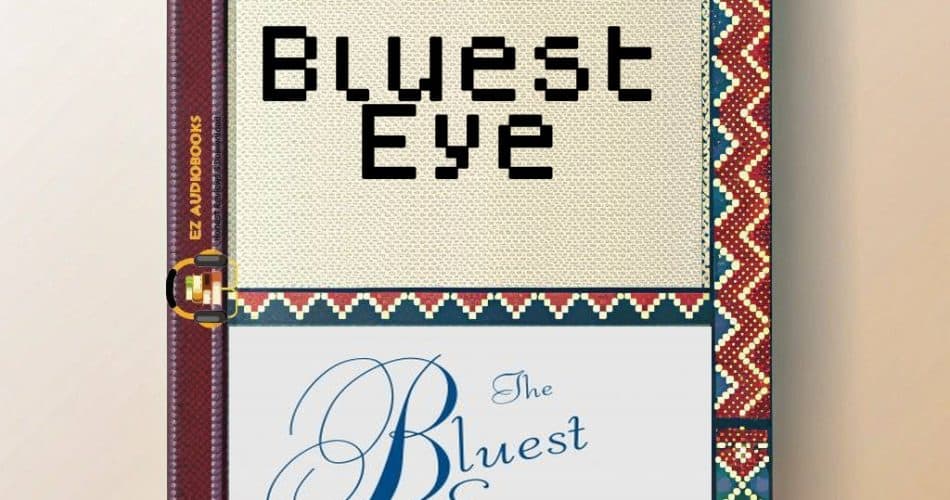Audiobook Sample
Listen to the sample to experience the story.
Please wait while we verify your browser...
- Title: Bluest Eye
- Author: Toni Morrison
- Narrator: Toni Morrison
- Length: 07:06:00
- Version: Abridged
- Release Date: 19/07/2011
- Publisher: Random House (Audio)
- Genre: Fiction & Literature, Literary Fiction, Coming of Age
- ISBN13: 9.78E+12
The Bluest Eye audiobook unfolds like a dusty road stretching across the heart of America, one I’ve traveled in spirit many times as a wanderer and listener. Toni Morrison’s debut novel, first published in 1970, is a piercing tale of Pecola Breedlove, an eleven-year-old Black girl whose yearning for blue eyes – a symbol of a beauty she’s been taught to worship – cuts deeper than any desert wind I’ve felt whipping through the Atacama. And to hear it narrated by Morrison herself? It’s like sitting across from a wise abuela under a Oaxaca moon, her voice weaving a tapestry of sorrow and resilience that you can almost touch.
It reminds me of a time when I was driving through Chile’s surreal Atacama Desert, the sand glowing like a mirage under the sun, listening to “One Hundred Years of Solitude”. The narrator’s voice back then carried the weight of generations, much like Morrison does here. Her words in “The Bluest Eye” don’t just tell Pecola’s story – they cradle it, mourn it, and demand you feel it too. As a travel writer, I’ve sat with storytellers from Lisbon to Lima, but Morrison’s narration is a masterclass in oral history, her cadence slow and deliberate, like she’s pouring every ounce of herself into the telling.
The story itself is a coming-of-age gut punch, wrapped in literary fiction that refuses to let you look away. Pecola’s world is 1940s Ohio, but it could be anywhere the weight of whiteness presses down on a child’s soul. She prays for blue eyes, believing they’ll make her beautiful, lovable, seen. Morrison digs into the ugly roots of that longing – racism, shame, and a society that idolizes blond, blue-eyed dolls while discarding girls like Pecola. You can almost hear the creak of her family’s sagging porch, taste the bitterness of her mother’s despair, feel the cold isolation of a girl unraveling. It’s storytelling that hits all the senses, the kind I chase in every hidden corner of the world.
As an audiobook experience, Morrison’s voice is the heartbeat. At just over seven hours, it’s compact but heavy – every pause, every inflection lands like a stone in still water. Her tone is warm yet unflinching, carrying the weight of a Nobel laureate who knows these characters like kin. I think back to those evenings in Oaxaca, listening to a grandmother spin tales of love and loss. The best narrators, like her and Morrison, don’t just read – they conjure. The audio quality is crisp, letting her rich timbre shine without distraction. It’s intimate, like she’s whispering these truths just to you.
But it’s not flawless. Sometimes the pacing feels too measured, almost heavy-handed, as if Morrison wants to ensure you don’t miss a single layer of pain. For a restless soul like me, used to the quick rhythm of travel, it can feel like lingering too long in one place. And while her voice is a gift, it’s so distinct that it occasionally overshadows the characters – Pecola’s quiet fragility gets wrapped in Morrison’s commanding presence, which might not suit listeners craving a lighter touch.
The themes, though? They’re timeless. Identity, beauty, the scars of rejection – they echo across cultures I’ve explored, from the markets of Marrakech to the backroads of Appalachia. Compared to other literary fiction like “Their Eyes Were Watching God” by Zora Neale Hurston, “The Bluest Eye” is bleaker, less hopeful, but just as vital. Morrison doesn’t offer easy redemption, and that rawness is its strength. It’s a book for anyone who’s ever felt like an outsider staring through a window they’ll never climb through.
If you’re new to audiobooks, this is a stunning place to start – especially if you can snag it free, which I’ll nudge you toward below. It’s perfect for fans of coming-of-age stories that don’t sugarcoat, or literary fiction that wrestles with the human condition. But if you’re after something breezy or uplifting, this might weigh too heavy on your shoulders.
For me, listening was personal. It stirred memories of a girl I met in a Brazilian favela years ago – dark-eyed, quiet, clutching a faded magazine with a fair-skinned model on the cover. She didn’t say much, but her silence spoke volumes, and Morrison’s words brought that moment rushing back. “The Bluest Eye” isn’t just a story – it’s a mirror, a cry, a hand reaching out across decades. Hearing it in Morrison’s voice made it feel like she was right there, urging me to listen closer, to care more, to keep telling the stories that matter.
Until the next tale finds us on the road,
Marcus Rivera

